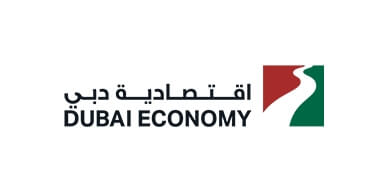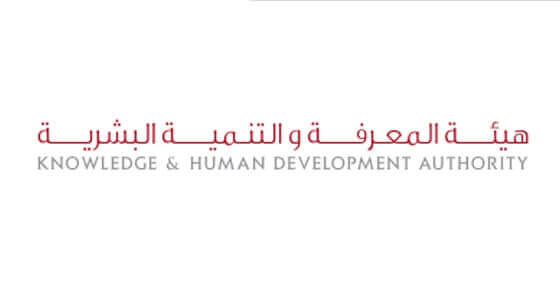Corporate Tax Services in UAE
Corporate Tax in UAE? Don't worry! Our best UAE corporate tax consultants will register your business for corporate tax and help you with corporate tax planning in Dubai.
10+
Years Of
Experience

Audit Completed

Experts

Government Agencies We Are Affiliated With




Best Corporate Tax Consultants in Dubai
From 1 June 2023, the Ministry of Finance (MoF) implemented a new federal corporate tax system. Every business in Dubai must rethink its business’s tax strategy at this point.
Are you struggling with these new tax changes and looking for the best corporate tax services in Dubai to help you?
Look no further than Avyanco corporate tax advisors. We are the top corporate tax advisory in the UAE that caters to businesses of all sizes. Our mission is to help you navigate the complex world of corporate taxes.
We help you –
- Remain compliant with UAE’s dynamic tax landscape
- Optimize your tax strategy for maximum savings
- Customized corporate tax consultancy services tailored to your business needs

What is Corporate Tax in UAE?
Corporate tax is federal income tax levied on businesses making more than $375,000 in a financial year. The laws and regulations for corporate tax in mainland and free zones are a little complicated.
Even if you are not liable to pay corporate taxes, you must still register and file returns under specific circumstances. Expert assistance becomes mandatory to tackle federal corporate tax challenges in Dubai.
Let’s go through all the important information you must have about corporate tax in UAE.
Applicable Corporate Tax Rate in UAE
The corporate tax rate, as per the Ministry of Finance (MoF), is 0% on taxable income of AED 375,000 or less. The corporate income tax rate is 9% when taxable income exceeds AED 375,000. Large corporations that meet the criteria associated with Pillar Two of the OECD Base Erosion & Profit-Sharing Project are subject to a different tax rate.
Corporate Tax in Free Zones
Businesses registered in free zones are exempt from the corporate tax if they comply with the regulatory requirements and are not involved in business activities on the mainland. However, free zone businesses must register and file corporate tax returns. You must engage with the top corporate tax consultants in UAE to ensure your eligibility.
Entities Exempted from UAE Corporate Tax
Businesses must engage professional corporate tax advisors to find out if they are eligible for exemption or not. However, certain businesses are exempt from the UAE corporate tax, including the UAE Federal Government, Emirates Governments, and their related bodies. Companies engaged in specific activities, such as charities, social security funds, retirement pension funds, and certain investment funds, are also exempt from federal CT. These exemptions are outlined in Cabinet Decisions and Emirate-level tax regulations.
How to Register for Corporate Tax - UAE
You have to register with the Federal Tax Authority (FTA) in UAE if your business is subject to CT. You must also obtain a Tax Registration number within a certain timeframe. Similarly, businesses that are no longer required to pay taxes have to deregister within three months of closing the business or stopping business activities. You must consult with corporate tax consultants in Dubai to help you understand your situation and assist with registration and deregistration processes.
Expert Consultation - UAE
Corporate tax is a new concept and its implementation can be confusing and daunting for business owners. It is highly recommended to consult with an experienced corporate tax consultant in UAE. They will assist you with understanding further developments in corporate tax rules, regulations, circulars, and notifications from the Ministry of Finance and the Federal Tax Authority.
Corporate Tax Services in UAE to Avoid Penalties
Timely planning for corporate tax compliance will help businesses save higher costs and relieve internal teams of the strain to finish these preparations by a short deadline. Avyanco keeps an in-depth knowledge and understanding of the latest corporate tax laws in Dubai. Our experience powered by expertise will ensure that your business will make a humble transition into the era of Corporate Tax. Comply with the tax rules in Dubai hiring the best corporate tax services in Dubai and growing seamlessly.

Impact Assessment
We conducted an initial assessment of the anticipated impact of the introduction of CT and TP (transfer pricing) based on the group structure and solo entity. We also assess the decision related to Foreign Direct Investment (FDI) and cost-benefit analysis of pre-tax and post-tax return on FDI. Learn More

Detailed Analysis Based on Legislation
We help you identify restructuring and optimization opportunities and required system changes by reviewing contracts with suppliers and customers. We also assist you with dividend distribution decisions on cross-border investments and help with merger and acquisition decisions due to huge losses incurred by one of the group companies. Learn More

Implementation
We assist in implementing necessary changes to legal documents according to the requirements of Corporate Laws. We help with designing TP policies, legal structure, operating model, capital structure, tax function, etc, and offer continuous coordination with management to have the best possible outcomes of tax structuring. Learn More

Post Implementation
A service license is designed for businesses that provide professional or specialized services, such as consultancy, marketing, IT services, and more. A service license is designed for businesses that provide professional or specialized services, such as consultancy, marketing, IT services, and more. Learn More
Benefits of Corporate Tax Services in UAE
As federal corporate tax is newly implemented, it has a learning curve. You have to learn about compliances and regulations to understand whether your business is liable for taxes or not.
Therefore, it is best to leave this to the experts and hire the best corporate tax services in the UAE. The benefits of hiring the top corporate tax professionals are –
Expert Guidance
Tax professionals with years of experience and a deep understanding of UAE's tax regulations provide expert guidance on
- tax planning
- Compliance and
- Optimization,
This will reduce your chances of making errors to 0%.
Tailored Solutions
Top corporate tax accounting firms offer tailored tax services to suit your specific needs. You receive a customized approach to solve the unique challenges your business might face.
Cost Savings
Best firms offer corporate tax solutions that not only keep you compliant but also maximize cost savings. They analyze everything to identify potential deductions and incentives to reduce tax liability as much as possible.
Stress-Free Compliance
Learning the new tax regime and navigating regulations can become overwhelming. However, you can rest easy when you engage with professional tax consultants. They handle all your tax compliance needs, allowing you to focus on growing your business.
Strategic Planning
Expert corporate tax consultants in the UAE assess your business properly. They work closely with you to develop a strategic tax plan that aligns with your business goals. These tax consultants also ensure that your tax strategy not only solves immediate concerns but also works long-term to secure your financial future.
Risk Mitigation
A top corporate tax consultancy firm in the UAE will help you identify and mitigate tax-related risks after a careful assessment. They minimize your chances of financial and reputational harm by helping you stay compliant with corporate tax regulations.

Why Avyanco Corporate Tax Services in Dubai?
Avyanco is your trusted partner for corporate tax services in Dubai. Our team consists of experienced UAE corporate tax consultants. We have a client-centric approach for all our activities and a proven track record of helping businesses thrive in the UAE’s dynamic tax environment.
We ensure you remain aware of all new tax reforms and provide real-time tax assistance to help you remain compliant.
- We Prioritize Stakeholder Wealth: Our team of professional tax consultants only has one motive – to enhance the wealth of stakeholders.
- Strategic Tax Analysis: We assess tax-cost management options using effective strategies that do not go beyond legal formalities.
- Global Tax Management: Our total tax management strategies are developed to reduce tax burdens on international transactions of your business.
How Avyanco Assists You?
Avyanco offers end-to-end corporate tax services, including registration, remaining compliant, filing taxes, and submitting tax returns. We assist you in the following ways to ensure you are in compliance with FTA’s rules and regulations.
- Assessment and Advisory
- Compliance Services
- Audit, Registration
- Return filing
- Accounting
Still Confused about taking your decision?
-

UAE Tax Expertise
As the provider of the best corporate tax service in UAE, we are well-versed in the ever-changing UAE corporate tax structure. Our corporate tax consultants in Dubai understand its long-term impact on brand value and business valuation.
-

Client-Focused Expertise
Our skilled team of Dubai corporate tax consultants excels in building strong relationships with our clients across various jurisdictions. We implement all the right strategies to ensure you achieve your business goals.
-

Client-Centric Approach
We prioritise our clients and ensure they save costs legally. Our corporate tax specialists assist our clients to optimise taxes and maximise their profits.
Meet Our Specialists
Our team consists of experienced UAE corporate tax consultants. They have years of experience and a deep understanding of the tax regime in the UAE. Our corporate tax experts are dedicated to providing you with the highest level of service and expertise.
Let’s meet them:

Ravi

Mansur

Himanshu

Himanshu
Join 2000 Happy Customers
Corporates in UAE are taxed at a flat rate of 9% on the taxable income reflected in the company’s financial statements. The corporate tax is only applicable when the taxable income of a business surpasses the threshold of 375,000 AED.
You must apply with the Federal Tax Authority to register for corporate tax. To do that, you must visit their site on eservices.tax.gov.ae and log into the EmaraTax Portal.
The UAE corporate tax rate applies to businesses with a taxable income exceeding 375,000 AED.
A business operating in a free zone can only qualify for tax exemption if it meets the eligibility criteria set by the Ministry of Finance.
- They enjoy a 0% tax rate on the income generated by working with businesses located in the free zones or outside of the UAE.
- A 9% tax rate is applicable to businesses in free zones that are involved in transactions from businesses located on the mainland.
The following are exempt from UAE corporate tax –
- Income received by an individual, including salaries and other employment earnings
- Interest and other income generated through bank deposits or savings programs by an individual
- Foreign investors who are earning income from sources such as capital gains, interest, dividends, royalties, and returns from investments
- Real estate investments made by individuals in their personal capacity
- Income derived from personal ownership of shares or other securities, including dividends and capital gains
